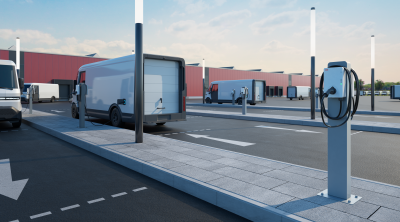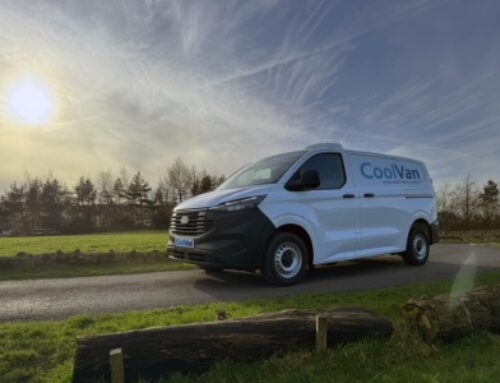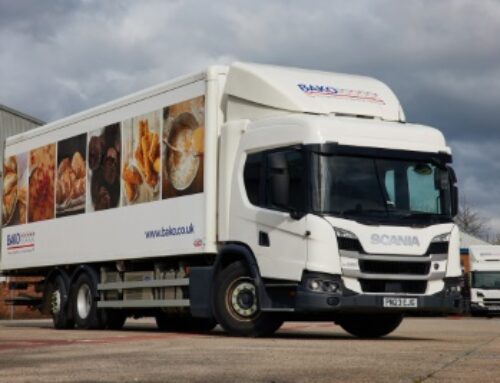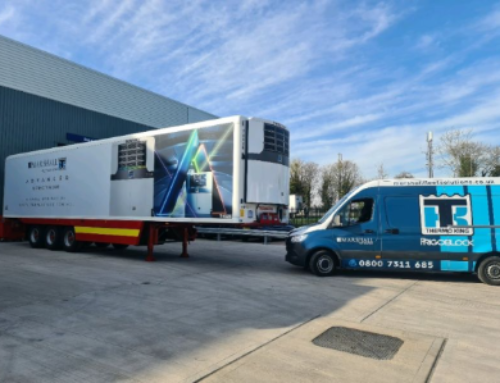ABB: rapid chargepoints will help drive shift to EV
 Technology leader ABB has offered its take on how rapid chargepoints can assist with the UK’s transition to electric vehicles (EVs).
Technology leader ABB has offered its take on how rapid chargepoints can assist with the UK’s transition to electric vehicles (EVs).
“In December 2022, sales of battery electric vehicles overtook diesel for the first time,” said Joe Ellwood, EV charger product specialist at ABB.
“However, when it comes to charging, one-third of people don’t have access to off-street parking at home, so many EV drivers will rely on public or workplace charging points. This creates a need for rapid public charging systems to accommodate more drivers. This is especially true for high mileage drivers on the motorway, who don’t want to wait.”
Transitioning to EVs makes sense for business and commercial fleets, Joe contends.
“According to insurance company LV, the average running costs for an EV are roughly half that of a petrol or diesel vehicle, and annual maintenance costs are almost £200 cheaper. Meanwhile, switching is also helpful for environmental, social and governance (ESG) reporting as it saves an average 1.5 tonnes of CO2 per vehicle.
“It also makes sense as it gives drivers a proper break. Unlike with conventional vehicles, a driver can leave their EV while it’s charging, which is helpful as drivers on long journeys should be taking breaks after two hours at the wheel. Whether charging an EV or fuelling a conventional vehicle, there’s little difference in the total length of that stop.
“The challenge is that many fleet managers and business drivers still worry about range. They want high-power EV charging to be widely available to get vans and other commercial vehicles back on the road.
“There’s a growing network of rapid and ultra-rapid chargers across the UK to support this. Today’s powerful ultra-rapid chargers are typically rated at 350 kW. These have the future potential to add 370 miles of range in a 20-minute charge – that’s more than enough to travel from London to Newcastle. Rapid charging starts at 50 kW which will top up range by 50 miles in 20 minutes, enough to go from Cardiff to Bristol.”
Motorway forecourts and fleet operators are already installing these, says Joe – adding that, when planning an installation, it’s worth remembering that power demand might exceed the capacity available from the grid connection, and that applying for an upgrade will add to a project’s lead time.
“As an alternative for some sites, a power management system can make the most of the available capacity by balancing and prioritising loads between chargers,” he said.
“Other sites use wayside battery energy storage to bridge the gap at peak times.”
There are growing numbers of rapid and ultra-rapid chargers on the UK’s roads, says Joe.
“For example, EV energy, charging and leasing company Gridserve has a network of rapid and ultra-rapid chargers rated at 120 kW and above covering 80 percent of the UK’s motorway network.
“In October 2022, it installed a 360 kW charger at its Electric Forecourt in Essex. The charger is capable of delivering 62 miles of range within three minutes or a full charge in less than 15 minutes. The Braintree site opened in late 2020 as the UK’s first motorway forecourt to cater exclusively for EV drivers. The firm has already opened a second site in Norwich and is preparing to open a third at Gatwick Airport in 2023. Ultimately, it is planning a network of around 100 such sites around the UK.”
Data connectivity and clever software are as important as the power components in an EV charger, adds Joe.
“Commercial systems need to support payments apps and vehicle recognition software, as well as enabling operators to minimise running costs by quickly identifying and resolving issues through remote monitoring and service.
“Smart charger technology will also become more important for grid operators to manage the impact as the number of EVs grows.
“Demand is increasing rapidly – ABB just delivered its millionth charger. Ultra-fast EV charging technology will be an important enabler for the transition to electric mobility and will help businesses future-proof themselves as the industry develops new EVs with greater range. However, low power domestic and workplace units are an equally important piece of the puzzle.”











